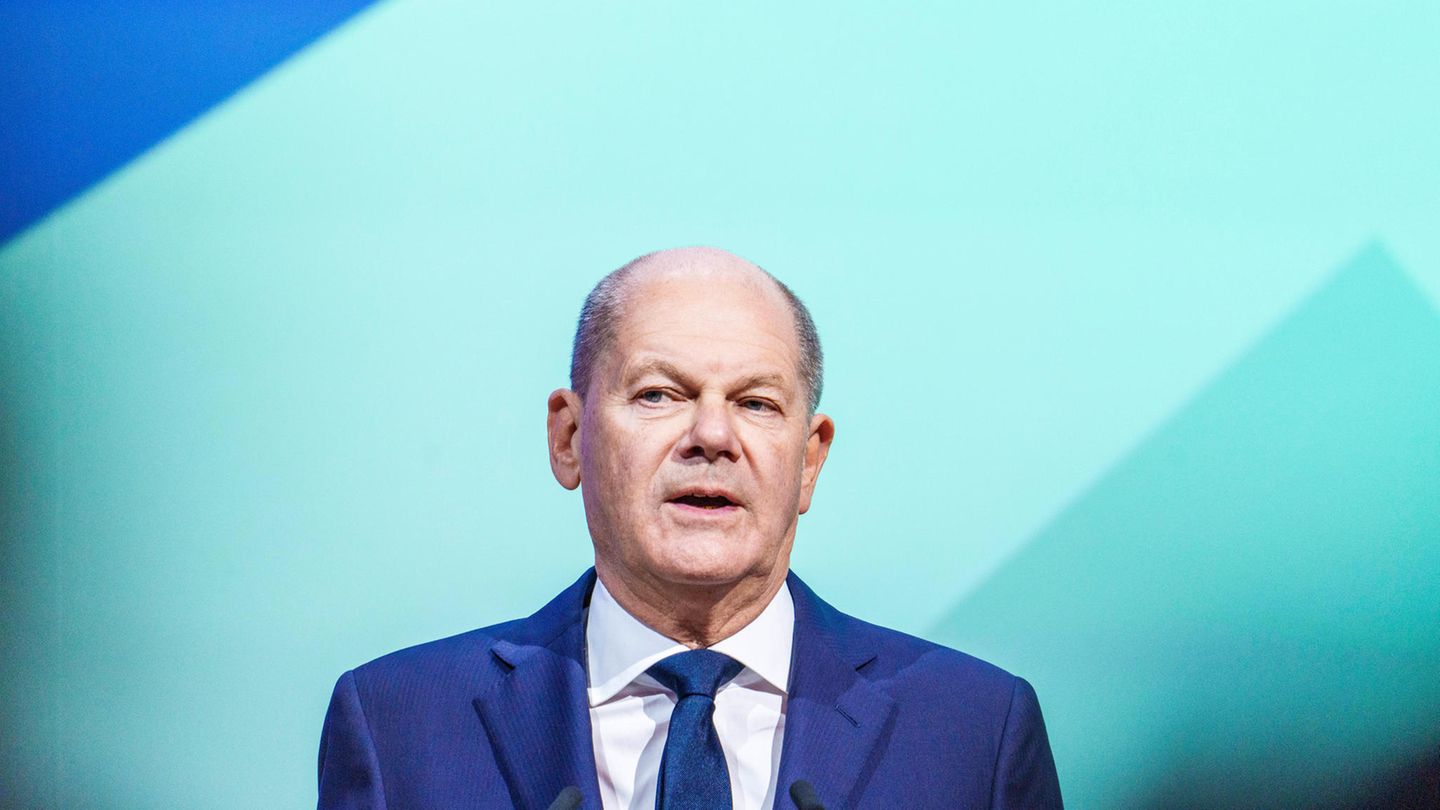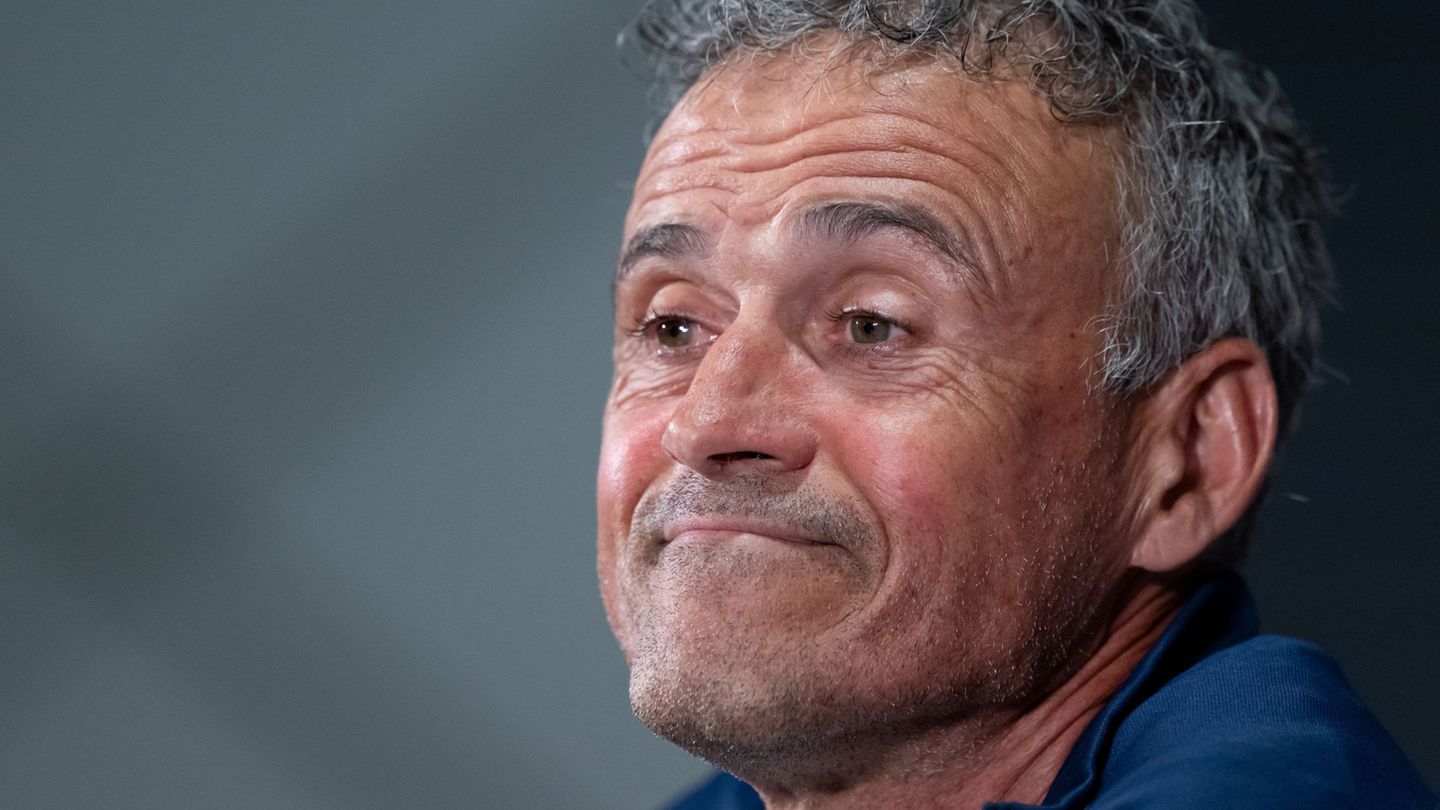column
The vote of confidence is a powerful means of pressure for the Chancellor. Olaf Scholz did without it. He wanted to save himself from having to start counting. Our author knows why that was a good idea.
The Chancellor sat with critical comrades. He had invited 74 left-wing Social Democrats to dinner in the Chancellery and talked about dark scenarios between courses. Gerhard Schröder said that evening in November 2001 that if the anti-terror operation was not supported, he would have to interpret it as “distrust” of himself. That was a blatant threat: Schröder was considering asking for a vote of confidence.
If you’re as old as me, dear readers, you’ll see that hardly anything happens in Berlin politics without you thinking: That’s happened before. At least similar. Like last week. Olaf Scholz, the first Social Democratic chancellor after Schröder, said in the SPD parliamentary group meeting that the coalition’s security package needed the coalition’s own majority in the vote in the Bundestag. Otherwise, “I have to make use of my options.” An unmistakable hint. The plural of possibility sounds as if Scholz had only given a glimpse into his diverse arsenal of weapons. But if the power of persuasion is not enough, the chancellor actually only has one option for disciplining the troops: a vote of confidence in the Bundestag. Schröder got serious. Not Scholz. For good reason.
The vote of confidence puts parliamentary operations in a state of emergency. The announcement in 2001 was followed by special meeting after special meeting in the government factions of the SPD and Greens. Because of the narrow majority, we constantly counted how many dissenters could be expected. Because of the narrow majority, even a heavily pregnant member of the SPD parliamentary group was not allowed to miss; a doctor was on hand if she had gone into labor at the ballot box. A Social Democrat and four Greens voted against the Bundeswehr’s anti-terror operation and therefore against their Chancellor. The coalition still exceeded the necessary absolute majority of 334 votes – by two votes.
If Scholz had asked the question of trust, the counting would have started
Scholz waived the question of trust. Unlike Schröder, he has a comfortable majority. With a current total of 733 MPs, Scholz is 48 votes above par with 415 traffic light parliamentarians. The coalition can afford some deviations. If Scholz had asked the vote of confidence, the counting would still have started – many MPs could have voted against the asylum package without endangering their Chancellor. In the end, Schröder had an almost solid majority. With Scholz the majority would have stood, but perhaps anything but united. Note: If the government has a narrow majority, the vote of confidence can be disciplinary – and if there is a clear majority, it can have the opposite effect.
By the way, Scholz and Schröder have one thing in common: opposition leader Friedrich Merz. A chancellor who had to link the vote on a factual issue with a “purely party-political issue” was not a chancellor who “led a powerful government,” he sneered in 2001. With Scholz and dozens of dissenting votes, he would probably have diagnosed that the coalition was slipping away from the chancellor . In the final vote on the asylum package last week, 15 SPD members and six Greens voted no, a total of eight coalition members abstained, and some stayed away from the vote. It wasn’t a great result for Scholz. But because he waived the vote of confidence, no rooster crowed afterwards. Not even Friedrich Merz.
Source: Stern
I have been working in the news industry for over 6 years, first as a reporter and now as an editor. I have covered politics extensively, and my work has appeared in major newspapers and online news outlets around the world. In addition to my writing, I also contribute regularly to 24 Hours World.




